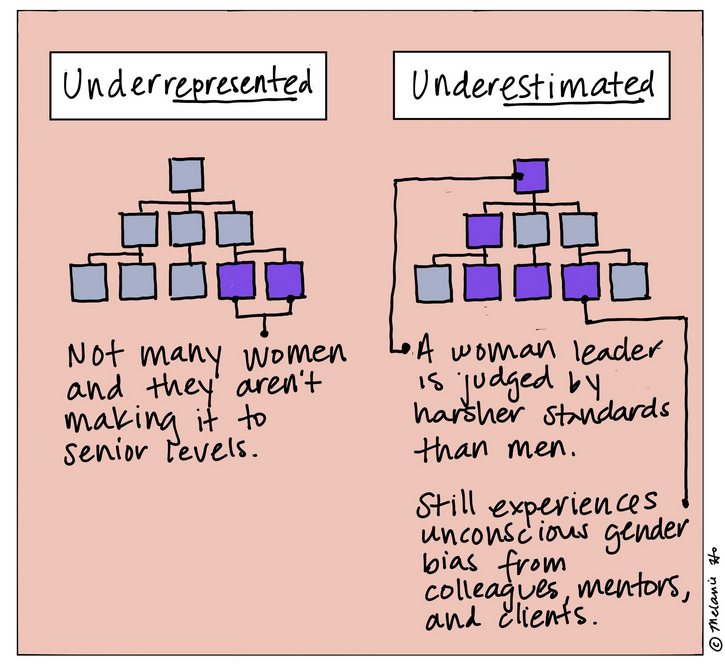
The spring issue of College & University calls attention to some of the challenges faced by women leaders in higher education.
Sara CW Sullivan interviewed Melanie Ho, a writer, visual artist, and professional speaker, who discussed the difference between being underrepresented and underestimated, an idea presented in one of her comics.
Because in higher ed, there are more women in leadership positions than there are in other sectors…there is more denial about the issues, Ho wrote. And what I've found is you can have a woman who is president, and that woman president is still facing all kinds of bias.

She adds: Because we are facing this challenge of declining rates of men as undergrads, it has somehow led to this perception that higher ed as a whole is a problem for men and not for women. But that has nothing to do with what a woman in the faculty or in administration faces. That's a separate issue that also needs to be tackled, but it is still a separate issue.
Later in the spring issue, AACRAO Executive Director Melanie Gottlieb similarly reflected on this issue:
Gender bias, both overt and subtle, as with many women, has been a persistent reality throughout my leadership journey. Like every other woman I know, I have encountered instances where my competence was questioned, my ideas were dismissed, and my authority was undermined in favor of my male counterparts.
The fact that so many women in higher education experience gender bias is somewhat ironic, given that women hold the majority in the AACRAO professions.
Gottlieb’s article discusses her leadership path, highlighting identity, mentorship and community, and equity. “One of the most profound lessons I have learned is that true leadership is about creating an environment where everyone feels valued, respected, and empowered and that decisions are, to the best of my ability, informed by inclusivity,” Gottlieb wrote.
Her reflection was inspired by a feature by Ujala Akram and Stephanie L. Krusemark, also in the spring issue, which provides an in-depth look at women’s leadership across the globe. The authors cover the importance of identity and inclusiveness in leadership, providing ancient and contemporary historical background.
Higher education must learn to work across racial, ethnic, cultural, political, religious, and socioeconomic barriers to advance women’s leadership, Akram and Krusemark write. Women must seek out the stories of inspiration and answer the call to stand by each other’s sides to continue to innovate and make change within the current time and contexts while not letting go of the possibilities for future generations.